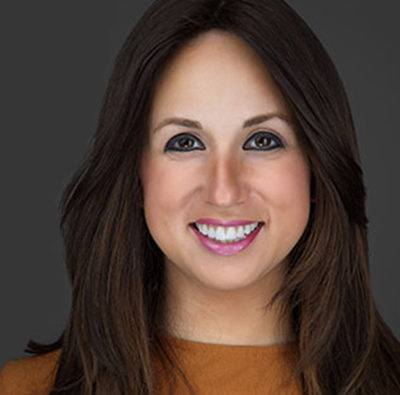HOW CAN I CREATE A MORE MEANINGFUL AND PRODUCTIVE WORKPLACE?

A few things employers can do to help create a more meaningful — and profitable — workplace

HOW CAN I CREATE A MORE MEANINGFUL AND PRODUCTIVE WORKPLACE?
Everything in the world that isn’t growing is dead. Trees, flowers, grass, animals — if they aren’t growing, they aren’t alive anymore.
The only exception to this rule is people. People can stop growing and still be alive, but G-d created us with a purpose — to grow. This is true in all areas of life — and it’s true in the workplace as well. Many employees today view their workplace as somewhere they have to be, not a place they want to be. But a job should be a source of fulfillment, a place where the work is challenging and opportunities for growth abound. At work, individuals should be able to grow every day toward the goal of realizing their unique potential for the benefit of the whole.
DEFINING “MEANINGFUL WORK”
What makes work “meaningful” is very individual. Some people thrive on being creative, while others are drawn to problem solving. Some people are energized by interacting with and helping others, while others enjoy the freedom of independent work. It’s important that employees be placed in a purposeful role that fulfills them. Fulfilling work translates to higher productivity, and higher productivity means higher profitability. That means everybody wins, the employer and employee alike. Here are a few things employers can do to help create a more meaningful — and profitable — workplace:
THE RIGHT MANAGEMENT
The first step to creating a meaningful workplace is ensuring that the managers and supervisors help their team grow. That may seem obvious, but unfortunately, in many businesses, managers are essentially babysitters who control and often micromanage their employees. Not only are managers too overpaid to play this role — but this approach also doesn’t yield the best results. Further, employees desire autonomy. Good managers empower each team member with the tools, resources, and encouragement they need to execute their responsibilities and reach their potential. The best managers understand people’s different personality styles and know how to enable and inspire their employees to do their best work. One of the companies we consulted for had an issue with a manager who was spending 90 percent of her time micromanaging her employees. Because of this, she barely had any time left to focus on the company’s growth, leaving her manager questioning why he was paying her to do just that — and creating a team of frustrated people. By working with her, we helped her learn to let go and trust her employees more. This led to them working harder and her being much happier, plus it freed up her time to work on bigger initiatives and projects. Oftentimes, a new manager can transform a team and production can skyrocket even when no members of the team change. Practically, managers should take time to get to know their employees, help them grow their skill sets, and move them into positions where they can use their strengths and excel.
UPWARD MOBILITY
Another way to create a meaningful workplace experience is to give your employees a chance to move up in the company. Many businesses lock employees into the roles they were hired to fill. Rather than advancing employees up the ladder when management positions become available, they bring in new people to assume those roles. When employees don’t feel there are opportunities for advancement, they don’t push themselves as hard or perform as well. Also, there is actually less risk involved in moving an existing employee into a leadership role, if he or she has a demonstrated work ethic. Even if the current employee hasn’t been there that long, it can still be better than hiring someone from the outside.
In one case, we had an entry-level employee straight out of college thriving for six months in a position. When a managerial position opened up, we suggested the company promote him. They decided to take that chance, and he only continued to succeed, helping the company grow even further. In another case in which we made a similar recommendation, the employer felt it was too quick of a move. In this case, the employee felt undervalued and ended up leaving, which was an even bigger loss for the company. Many people are motivated by the opportunity to take on more responsibility and secure a higher level role (with better compensation to match). Bring out the best in your employees by giving them opportunities and awarding strong performance.
ACCOUNTABILITY
Accountability may seem scary, but it is actually a game-changer for companies. People do their best when they know their work is being seen and makes an impact. No one wants to be embarrassed by a mediocre performance; on the contrary, most people want to be acknowledged for their efforts, as well as praised and rewarded for their successes. We consulted for a company that had a warehouse with nearly 100 employees, and they wanted to increase production.
We started tracking every employee’s metrics and then let them know what their stats were for that week and how it compared to the others in their department. Just having the employees aware that management knew specifically how they were doing raised production by 20 percent. The ones who had high metrics were glad that they were recognized and worked even harder. The ones who had a lower performance realized they had to work harder if they wanted to keep their job. It helped all the employees perform at their best. Of course, before you can hold your team accountable, it’s important that each member of your team has a clear understanding of their individual roles and responsibilities. Simply put, they can’t be held accountable if they don’t know exactly what is expected of them.
Making changes to the way you conduct your business isn’t always easy. But by implementing meaningful practices, you will be laying a foundation for a happier, more fulfilled team, and a more productive and profitable workplace.
Avraham Markovich is the CEO of Happili.Co. In his work, he consults with companies experiencing employee issues that result in a lack of productivity and profitability. Helping companies get to the core of these issues, he draws on his expertise in metrics, recruiting, and in-person surveys to maximize a team’s productivity. He can be reached at 516-668-6460 or via e-mail at letstalk@happili.co.
(Originally featured in 2.0, Issue 6)
Oops! We could not locate your form.












